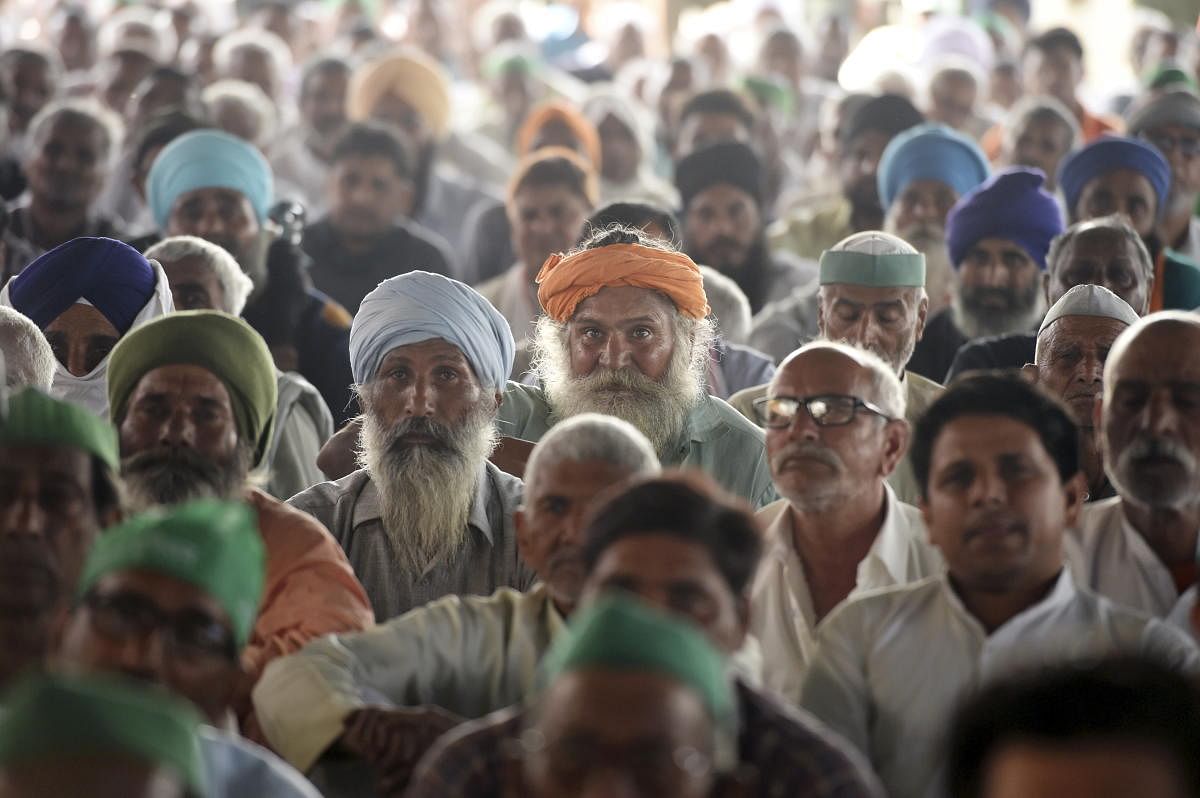
The farmers protest continued into the third month despite the violence of January 26. The rioting gave the police an opportunity to bring more forces and restrict the approach routes to Delhi’s Singhu and Ghazipur border.
Though four farm Unions quit the agitation, the core agitating group remained intact and resolute. Thus, the stalemate continues after efforts of the government and the Supreme Court to bring together a mutually acceptable settlement did not bear fruit, with the protesting farmers refusing to play ball.
The farmers have received both public sympathy and apathy. They have dominated prime time news for the past few months. But the attempts to enforce a countrywide bandh evoked lukewarm response, outside Punjab and Haryana on both occasions.
They have received support from all opposition parties but most academicians and agriculture experts have by and large supported farm reforms. They have huge support from the significant Punjabi population, but other residents of the capital are indifferent to the agitation. The social media is vertically split, with camps supporting and opposing the laws equally vociferous.
Looking at 2022 state elections: The protesting farmers are looking for a repeal of the three farm laws. They want status quo with the 2,500 agriculture produce marketing committee (APMC) mandis handling agriculture procurement with minimum support price (MSP) protection.
It means protection to the existing players in the farm markets and barring of corporates. It also means no new markets. They have added supplementary demands like free electricity, water, farm loan waiver, right to burn ‘parali’ that espouses other farmer causes.
They are ready to stay put for the whole year with 30,000 plus kisans on the rote occupying the three borders of Delhi. Few major tractor blockades will be done in the coming months.
Over 60,000 registered Arathiyas (middlemen) of Punjab and Haryana, who earn commissions of over Rs 2,000 crore annually from the APMC mandis are said to be funding the protest. So, prolonging it till Gandhi Jayanti when the electoral alliance will be announced is not an issue.
The protests give the farm leaders high visibility for the state elections. Though farmers leaders Rakesh Tikait, Yogendra Yadav, Gurnam Singh Chaduni and others lost deposits in the 2019 parliamentary elections, they believe prolonging farm protests can help them reverse their electoral fortunes.
They plan to keep the capital unsettled for over a year till the Punjab and UP elections arrive. Arvind Kejriwal rose from street protests but swept the Delhi elections repeatedly. Maybe the farm leaders at the Delhi borders can also succeed in electoral politics under a new ‘Samyukt Kisan Morcha’ with support from the combined opposition.
The BJP knows this. Yet they are unfazed. They know that as the stalemate continues, they can spread the message across the country how reforms are being stopped by an intransigent opposition.
Even if they lose some votes in north India, they will gain support in other states for their attempt to open up markets and modernise farming. Rice and wheat of Rs 80,000 crore is procured from the APMC mandis of Punjab and Haryana annually, despite excess stocks with the Food Corporation of India (FCI).
The poor farmers of poor states like Bihar and West Bengal who do not have the mandi infrastructure get left out. The APMC mandis of Nashik and Lasalgaon are already infamous for hoarding onions and making the housewife weep every year. In ‘mandis’ versus ‘free markets’ battle, they believe that the urban voter and youth will support reforms.
Will farm gate buying and food processing materialise?: It is true that the government pushed through the bill without widespread consultation. But this is not new. This happens every time when one political party has a brute majority.
In this parliament session, the BJP will offer to discuss the bills belatedly and hopefully make amendments to remove the shortcomings. Maybe they will stay it in the 13 states that have APMC mandi infrastructure and implement it in the other 16 states. But no rollback is expected.
The BJP, however, needs to understand that bringing laws is not enough. The government which is pushing forward the farm reforms needs to get down to the real-time execution.
They must make the three dozen food parks across the country operational and buzzing with life, to show that they can walk the talk. These food parks were supposed to have the cold chains and the processing and packaging units that the farm bill brings to the table. However, only four projects have been completed in the last six years.
For reforms to succeed, one must prove that the farm gate buying concept can yield great results and really improve the lives of farmers. Only then will the farmer and the voter could be convinced.
(The writer is a journalist and author of three books on economic governance)